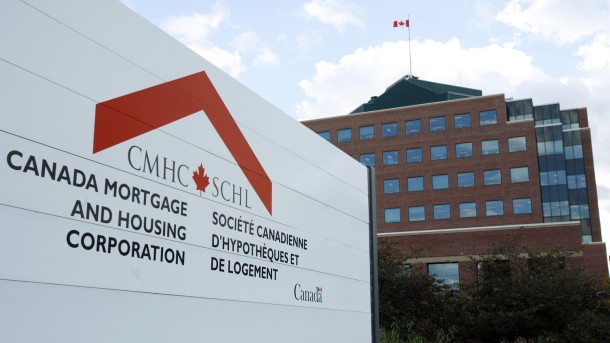Canada’s big six banks will allow mortgage payment deferrals for up to six months as part of extraordinary measures to help customers struggling with the financial impacts of the novel coronavirus pandemic.
In a tweet on Wednesday morning, Neil Parmenter, president of the Canadian Bankers Association, said the measures are “effective immediately.” RBC, TD, BMO, Scotiabank, CIBC and National Bank will also offer “opportunity for relief” on other credit products.

Effective immediately @BMO @cibc @nationalbank @RBC @scotiabank @TD_Canada offer support for Cdns impacted by #COVID19 incl. a 6-month payment deferral for mortgages, & opportunity for relief on other credit products. Talk to your bank
In a joint press release, the big six banks said they are committed to working with retail and business customers to provide “flexible solutions” for those facing hardship due to the disruptions caused by COVID-19.
It is unclear whether customers will be able to postpone mortgage payments interest-free. Global News asked all the big banks whether interest on deferred mortgage installments will accrue until borrowers make those payments.
Scotiabank told Global News it will be reviewing all requests for mortgage deferral “on a case-by-case basis,” adding it is committed “to working directly with our customers to provide relief from financial stresses due to COVID-19. ”
However, the bank also pointed Global News to its COVID-19 FAQ page, which reads: “During the time you defer your mortgage payments, interest will continue to accrue – so your payments will be slightly higher after the deferral period ends.”
National Bank and TD stopped short of saying deferred mortgage payments will not accrue interest.
“There are different scenarios depending on client files and loan parameters,” the National Bank said, adding: “The objective is to allow clients to get back on their feet as quickly as possible, with sound advice.”
TD also said it is committed to work with personal and small business clients “on a case-by-case basis,’ adding that it is taking a similar approach to the one it adopted in the 2008 financial crisis with its “TD Helps program.”
RBC, BMO and CIBC did not respond to Global News’ media request.
The announcement comes as Canada’s housing agency, the Canada Mortgage and Housing Corporation (CMHC), has been working to ensure struggling homeowners aren’t forced into default during the health-care emergency.
“The message that CMHC is putting out is just that no Canadian should default as a result of this health crisis,” said James Laird, president of CanWise Financial, an independent mortgage brokerage, and co-founded of Ratehub.ca
On Monday, CMHC announced it would bring back a revised version of the Insured Mortgage Purchase Program it used during the 2008-09 financial crisis. The government plans to purchase up to $50 billion worth of insured mortgage pools.
The move, CMHC said, is meant to “provide stable funding to banks and mortgage lenders in order to ensure continued lending to Canadian consumers and businesses.”
Deferred mortgage payments are typically added back to the mortgage amount, meaning borrowers are simply postponing — not skipping — payments.
Mortgages with other lenders
For insured mortgages, there are a variety of tools that can help borrowers stave off default.
Possible solutions include allowing borrowers to defer or temporarily reduce payments, stretching out the mortgage term or amortization period, adding missed payments back onto the mortgages and lowering the mortgage rate.
Canada’s three providers of mortgage default insurance, which include CMHC as well as Genworth Canada and Canada Guaranty, which are private, are stepping up efforts to help struggling homeowners amid the novel coronavirus emergency.

3:11Coronavirus around the world: March 17, 2020 Coronavirus around the world: March 17, 2020
Canada Guaranty announced on its website it’s ready to extend its Homeownership Solutions Program to allow the deferral of up to six monthly payments, up from a current limit of four payments.
In Canada, homebuyers with a down payment of less than 20 per cent must have mortgage default insurance.
For uninsured mortgages, many lenders offer flexible payment options, often allowing borrowers to avoid making one or more regular payments per year without affecting their credit rating.
Flexible payment options may be special features attached to specific kinds of mortgages or standard offerings available on all mortgages, depending on the lender.
Latest Stories
-
Queenmother calls on President-elect Mahama to appoint more women in his government
19 minutes -
Atletico Madrid beat Barcelona to go top of La Liga
37 minutes -
Usyk breaks Fury’s heart with points win in rematch
39 minutes -
Ghana-Russia Centre to run Russian language courses in Ghana
6 hours -
The Hidden Costs of Hunger: How food insecurity undermines mental and physical health in the U.S.
7 hours -
18plus4NDC marks 3rd anniversary with victory celebration in Accra
9 hours -
CREMA workshop highlights collaborative efforts to sustain Akata Lagoon
9 hours -
2024/25 Ghana League: Heart of Lions remain top with win over Basake Holy Stars
11 hours -
Black Queens: Nora Hauptle shares cryptic WAFCON preparation message amid future uncertainty
11 hours -
Re-declaration of parliamentary results affront to our democracy – Joyce Bawah
11 hours -
GPL 2024/25: Vision FC score late to deny Young Apostles third home win
11 hours -
Enhancing community initiatives for coastal resilience: Insights from Keta Lagoon Complex Ramsar Site Workshop
11 hours -
Family Health University College earns a Presidential Charter
12 hours -
GPL 2024/25: Bibiani GoldStars beat Nsoatreman to keep title race alive
12 hours -
GPL 2024/25 Bechem United keep title hopes alive with narrow win over FC Samartex
12 hours

